Powerful Weirdos: Seeing my Neurodivergence in Shonen Protagonists
by Sean Aitchison,There's more than meets the eye to Goku—in fact, there's more than meets the eye to Naruto, Luffy, Asta, and most shonen battle protagonists. Though they seem like just simple-minded, rude, and hyperactive hotheads, there's a lot of complex layers to them. On top of their potential for deep, powerful storytelling in their undying determination, fighting-against-the-world narratives, they also serve as a fantastic source of neurodivergent representation.
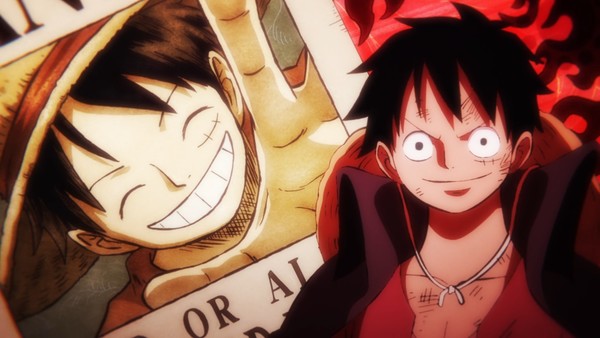
Neurodiversity is the umbrella term for anyone with atypical brains, most often referring to those with ADHD or those on the autism spectrum, but also includes the likes of OCD, dyslexia, and other learning or developmental disorders. I was diagnosed with ADHD when I was 9, and just this year found out I am also likely on the autism spectrum. In the midst of learning more about my brain, I found myself hyperfixating on shonen anime/manga and the tropes that permeate the genre. Why was it that as I learned more about my brain, I became more and more obsessed with the shonen battle formula?
Then it dawned upon me, the connecting thread between the two: Shonen protagonists are neurodivergent-coded—perhaps not intentionally, but the similarities are undeniable. Be it how they act, how they think or how they are treated, shonen protagonists experience the world in ways remarkably similar to those with some form of neurodivergence, serving as some of the best representation for those who have grown up with atypical brains.
One of the biggest factors in shonen anime and manga's popularity is the underdog narrative they all provide. Anyone who has experienced any instance of feeling underestimated, overlooked, or looked down upon, be it their whole life or in small instances, can relate to the experiences of shonen protagonists like Naruto or Asta—characters pushed to the side for reasons beyond their control. This is why shonen is so relatable and endearing to a wide variety of demographics.
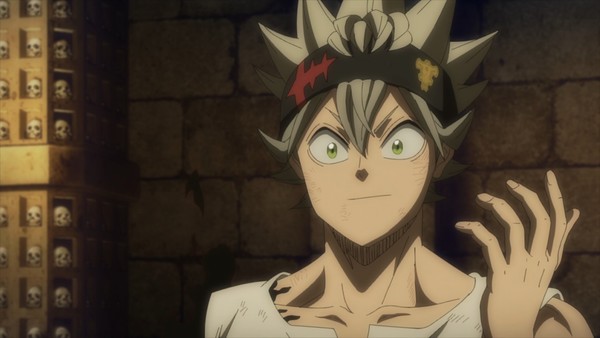
But I think the underdog narrative is particularly poignant to neurodivergent people because of the other traits that shonen protagonists exhibit, traits that are directly relatable to ADHD and autistic experiences. Let's use One Piece's Monkey D. Luffy as our working example, as I think he serves as a strong baseline for the comparison.
Starting with Luffy's personality, we find that he is eccentric in a number of ways. In social interactions, he is blunt, direct and straightforward, and as such, communication that isn't as straightforward is met with straightforwardness—i.e. someone tells Luffy he can't just free a nation, he proclaims he'll just punch the people in his way to punching the dictator in charge—or just a "why not?" in response. His words can often come off rude, when he's more just speaking truthfully, like when he calls Hoshi "Wimpy Hoshi." He's not saying that with the specific intent of being mean or hurtful, he is calling her what she is, a scaredy cat, but not indicating that this moniker is a bad thing, just what she is.
Reasons depend on the individual, but it is common for those on the spectrum to not understand, implement or care for social constructs and rely on independent motives rather than co-dependant motives, i.e. saying or doing something based on their individual thinking rather than considering any number of social pressures. We also see these traits in Goku—he doesn't see the social faux paus he commits, like lifting Bulma's skirt to look for her tail, telling people they are old, or wondering why he has to act certain ways or do things like have a job when all he wants to do is train.
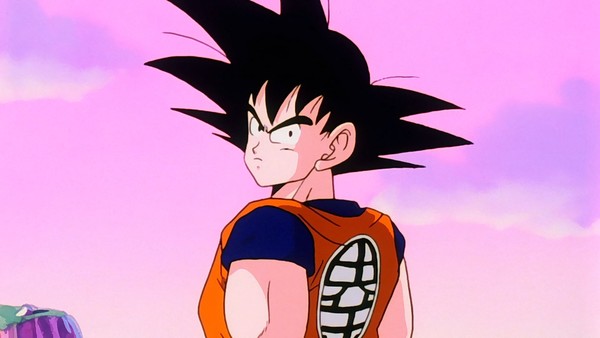
Other traits that fit with both ADHD and autism are hyperfixation and obsession. While people with ADHD appear to be unable to focus on something, when it's one of their interests, they become hyperfixated and hyperfocused on it, unable to do anything but focus on it. Hyperfixation in autism is similar, as autistic brains also excel at focusing deeply on one thing at a time, hyperfixating on a show, character, hobby, etc. and hyperfocusing on that fixation during certain periods.
Think about how the Straw Hats split up during an arc; Luffy usually wanders off because something excited him and he simply had to go look at it. Those with ADHD, myself included, are impulsive, and if something captures my interest, all of my mental energy is suddenly dedicated to experiencing it to the fullest. Conversely, things that are not what we're interested in are a slog, a monumentally difficult and boring task that can feel like torture to get done, if we even get it done at all. We can see this in Luffy being bored by the more mundane aspects of being a pirate, in having to wait to heal up before he can go to his next adventure, or just having to do something that doesn't line up with his style, like accepting an entire fleet or being seen as a hero rather than a pirate. He doesn't like it so there's no budging.
Hyperfixation is also evident in the long-term dreams of shonen protagonists. For Luffy, it's becoming king of the pirates, Naruto wants to be hokage, Goku wants to become stronger and fight strong opponents, Asta wants to be the wizard king, Gon wants to become a hunter, Deku wants to become the number one hero, and so and so forth. Deku in particular is known for getting caught up in ramblings about hero stats, power analytics, strategy and attacks, hyperfocused on the niche details of his hyperfixation of heroes. He, Luffy, Naruto, and Asta are all obsessed with their dreams, always actively pushing towards that dream and stubbornly planting their feet whenever someone says they can't achieve it, stands in their way as an obstacle, or laughs at their aspirations.
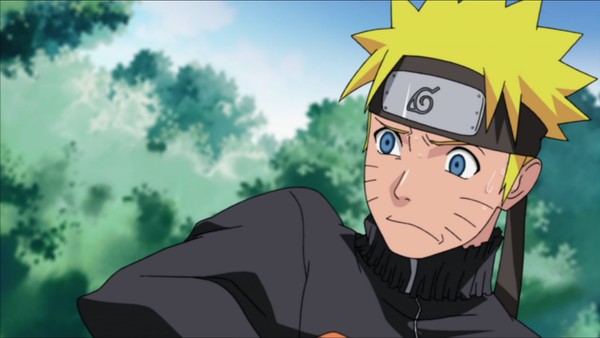
Often, shonen protagonists are underestimated or overlooked. The reasons vary, but for Luffy it's because he's just a kid, has a devil fruit (thus can't swim) that is silly and weak-looking. For Deku and Asta, they lack the power of their respective worlds' power systems and thus "there's no way" they can be a hero or wizard king. Naruto is also shown to be generally inept at ninja technique—or at least appears to be in his troublemaker nature—and Soma Yukihara's diner-style food is looked down upon as lacking gourmet techniques.
In more simple terms, most shonen protagonists appear to be inept or weak in some, lacking a key thing that others in their worlds have that is equated with power, be it status, a certain ability, lineage—sometimes because of their neurodivergent-leaning traits. This feels like my own experience: I feel like I lack the “built-in normal brain” stuff that others come by or gain so easily. I feel like there's pieces of my brain puzzle missing, like Deku feels his lack of Quirk, Asta feels his lack of magic, or Luffy feels the steep climb of the obstacles and towering enemies that stand in his way.
However, the key word in all this is "appears." They only appear to be weak or lacking something, because where others see weakness, shonen protagonists find unique strengths that nobody else has. It's because they think differently from others, have to work around a missing power, have a different background, or work with unique abilities that they are able to turn all of those perceived weaknesses into strengths that lead them to victory.
And this is part of the positive and inspiring nature of the shonen protagonist/neurodivergent comparison: We see shonen protagonists persevere with their oddities when the world only sees their weaknesses. Luffy sees the world differently, and because of that he is able to turn stretching powers, arguably a goofy and not very useful power, into insane power-ups—stretching his blood vessels to increase his speed and strength, inflating his bones to create massive fists for big punches, and hardening his arms and muscles. Other pirates in the Grand Line couldn't make use of the Gum Gum fruit like that because they were too busy seeing the power as weak and the goofy weirdo who has them as inept.
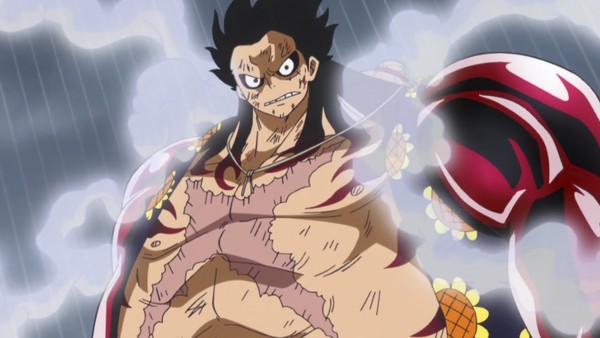
This is a consistent factor among shonen protagonists—Goku is a "low class" Saiyan, one who was not ruthless and bloodthirsty like Vegeta thinks strong Saiyans should be, but it was his compassion and love of his friends that pushed him to become the first Super Saiyan out of anger from the death of his friend. Naruto is ostracized for being a goofball, a troublemaker and, biggest of all, for housing the Nine-Tailed Demon Fox within him... which he later uses as a massive Chakra well to create armies of shadow clones and powerful rasengan attacks. Deku had no Quirk, but is an analytical genius (there's the hyperfixation again!) when it comes to hero strategy, so when he does get powers, he grows very quickly as a hero, applying all of his weird obsessions into his combat and rescue capabilities. Consider Asta too; he was deemed weak and useless for lacking magic, but it was because he was born without magic that he was able to wield anti-magic, an ability so powerful it shakes the entire foundation of the world of Black Clover. There's also Soma Yukihira, who applies his diner-style cooking in ways that all the high and mighty gourmet students don't expect, and which often give him the win in unexpected twists.
However, even in depicting these strengths, we still see shonen protagonists have flaws, which is perhaps just as important as seeing them thrive. Neither their strengths nor flaws explicitly define them. In this, they avoid neurodivergent stereotypes—we don't see Luffy as an exhausting burden for his communication differences, nor is he a savant. The same could be said of Goku and Naruto; their flaws are still flaws and their strengths are unique, showcasing what others don't see.
And that's probably the most important part of this all. Shonen protagonists are always themselves. They do not change who they are, and they don't compromise who they are or what they want. They are just themselves, and they make friends on their own terms, achieving their dreams and overcoming people who would want them to change or conform.
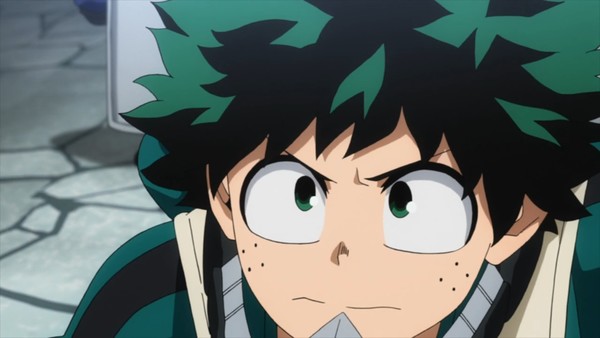
And this? This is so goddamn powerful. Neurodivergent people are known to mask their atypicalness, to take on false traits to not face the negative responses that much come with being their genuine autistic or ADHD selves. Masking sucks, it's exhausting, it carries a weight built off that idea that if we are what we are, we will not be accepted, so it's inspiring and powerful to see shonen protagonists as neurodivergent-coded and see them thrive just as they are, oddballs that find their tribe and achieve their dreams.
These positive aspects are one of the major reasons I became obsessed with shonen protagonists as a neurodivergent narrative. They help me see my "weirdness" and different thinking as a strength, and inspire me to be my atypical-brained self more often. It's also cool to see their positive flat characters arcs, characters without an arc themselves but ones who affect the world for the better around them—inspiring people to be themselves to change the world for the better, not change themselves in hopes that others like or respect them.
Shonen protagonists might seem boring or one-note to people, but I'm so goddamn jazzed at every shonen anime for exactly this reason. There is so little autistic and ADHD representation in media, and what little there is comes with negative stereotypes and oversimplifications (ADHD people have short attention spans, autistic people can't communicate but are brilliantly talented at something, etc.), so it's such a breath of fresh air to see so much realistic, balanced, positive and powerful representation in shonen anime, and I hope others like me see it as well.
discuss this in the forum (10 posts) |